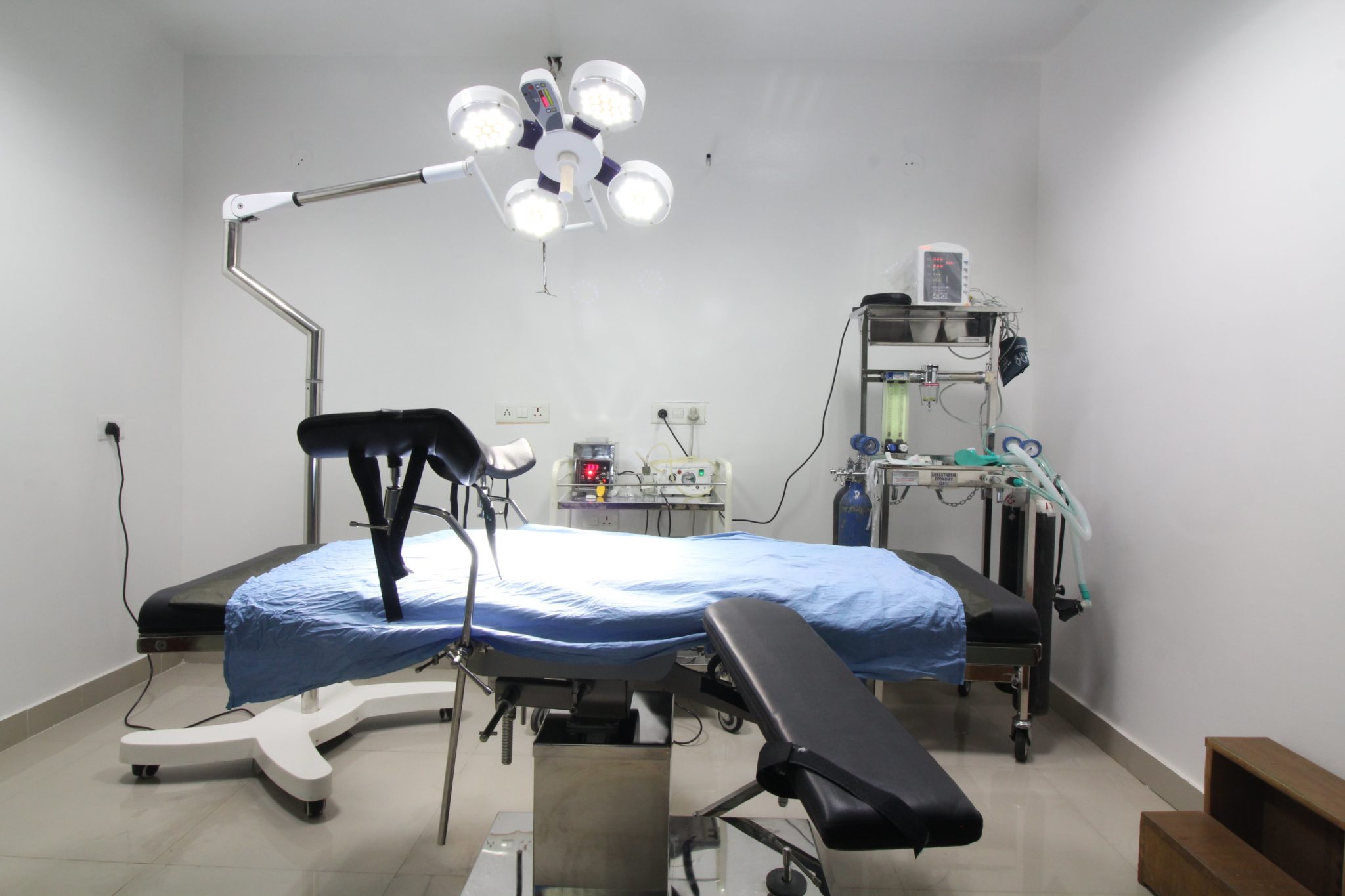Fertility treatments, particularly in vitro fertilization (IVF), have undergone significant advancements in recent years, thanks in large part to technological innovations. Fertility centers, such as a Fertility Center In Patna, are increasingly utilizing cutting-edge technology to improve success rates, minimize risks, and provide personalized care to individuals and couples struggling with infertility. From advanced diagnostic tools to artificial intelligence (AI) in embryo selection, technology is transforming the landscape of reproductive medicine. In this article, we explore the various technologies fertility centers are employing to enhance treatment outcomes and support their patients throughout their fertility journey.
1. Advanced Diagnostic Tools for Personalized Treatment
One of the first steps in any fertility treatment is diagnosing the underlying cause of infertility. Fertility centers are investing in advanced diagnostic tools to provide accurate and comprehensive evaluations, which are critical for formulating effective treatment plans. These tools allow specialists to assess a patient’s reproductive health with greater precision, enabling more targeted interventions.
Genetic Testing and Screening
Genetic screening has become an essential part of fertility diagnostics. Techniques like Preimplantation Genetic Testing (PGT) allow fertility centers to test embryos for genetic disorders before implantation. This is particularly helpful for individuals who are at risk of passing on genetic conditions or those undergoing IVF at an older age. By screening embryos for abnormalities such as Down syndrome or other chromosomal issues, PGT significantly increases the likelihood of a healthy pregnancy.
Ovarian Reserve Testing
Ovarian reserve refers to the quantity and quality of eggs a woman has left, and it plays a crucial role in IVF success. Advanced imaging technologies, such as 3D ultrasounds, are used to assess the ovaries and estimate ovarian reserve more accurately. These tests help fertility specialists determine the best approach for stimulation protocols, enhancing the chances of retrieving high-quality eggs during IVF.
2. Egg Freezing and Embryo Cryopreservation
Another technology that has revolutionized fertility treatments is egg freezing and embryo cryopreservation. These technologies allow women to preserve their eggs or embryos for future use, which is particularly valuable for women who wish to delay pregnancy due to personal or medical reasons. For example, women undergoing cancer treatments that might compromise their fertility can freeze their eggs or embryos to use later.
Cryopreservation technology has improved significantly, making it possible to freeze embryos and eggs at their most viable state. Fertility centers are now able to freeze embryos at various stages of development and thaw them when the patient is ready for implantation. This approach not only preserves fertility but also increases the chances of pregnancy by allowing women to undergo fertility treatments later in life.
3. Artificial Intelligence and Machine Learning
Artificial Intelligence (AI) and machine learning are increasingly being integrated into fertility treatments to improve embryo selection and optimize IVF success rates. These technologies are being used to analyze large sets of data from past IVF cycles, including genetic information, embryo morphology, and other factors. By doing so, AI can predict which embryos have the highest potential for successful implantation and pregnancy.
AI in Embryo Selection
Embryo selection is a critical part of IVF, as choosing the right embryo can significantly impact the chances of a successful pregnancy. Traditionally, embryo selection has been based on the expertise of embryologists who assess the embryos’ morphology and development. However, AI algorithms now assist embryologists by analyzing high-resolution images of embryos, detecting subtle patterns that may not be immediately visible to the human eye. This can help select embryos with the highest chance of success, improving the likelihood of a healthy pregnancy.
Predictive Analytics in Treatment Planning
AI also plays a role in predictive analytics, where machine learning algorithms help fertility specialists develop more personalized treatment plans. By analyzing patient data—such as hormone levels, age, and medical history—AI can predict which fertility treatments are most likely to succeed for a particular individual. This reduces the trial-and-error process and helps fertility centers design tailored treatments, increasing overall success rates.
4. Improved IVF Laboratory Technology
The IVF laboratory is a critical component of the IVF process, and advancements in laboratory technology have led to significant improvements in treatment outcomes. Modern IVF laboratories are equipped with state-of-the-art incubators, microscopes, and imaging systems that create optimal conditions for embryo development.
Time-Lapse Imaging
Time-lapse imaging is a technology that allows continuous monitoring of embryos throughout their development. Traditional embryo monitoring involves periodic checks, which can disrupt the embryos’ growth environment. With time-lapse imaging, embryos are observed continuously without disturbance, allowing embryologists to track development in real time. This technology helps in selecting the most viable embryos, as it provides detailed insights into their growth patterns, leading to better outcomes.
EmbryoScope
The EmbryoScope is an advanced incubator equipped with built-in time-lapse cameras that monitor the embryos 24/7. This technology not only improves embryo selection but also minimizes the risk of external factors that might interfere with embryo development. By analyzing embryos at each stage, it enhances the decision-making process during IVF, ultimately increasing success rates.
5. Minimally Invasive Procedures and Robotics
Minimally invasive procedures have become a cornerstone of modern fertility treatments. With the help of advanced imaging and robotic technology, fertility specialists can perform procedures such as egg retrieval, sperm collection, and even tubal surgery with greater precision and less discomfort for the patient. These procedures reduce recovery times, minimize risks, and improve the chances of success in IVF cycles.
Robotic Surgery for Fertility Preservation
For patients who require surgical intervention due to conditions such as endometriosis or blocked fallopian tubes, robotic surgery offers significant benefits. With robotic-assisted surgery, specialists can perform complex procedures with extreme precision, reducing the risk of damage to surrounding tissues and increasing the likelihood of a successful outcome. This technology also results in smaller incisions, faster recovery times, and less post-operative pain.
6. Telemedicine and Remote Monitoring
The rise of telemedicine has been a game-changer in fertility treatments, especially in the context of ongoing consultations and remote monitoring. Fertility centers are increasingly using digital platforms to conduct virtual consultations, allowing patients to receive care without having to travel long distances. For patients undergoing IVF, this is particularly convenient as it reduces the time spent in clinics and provides an opportunity for more flexible scheduling.
Additionally, remote monitoring technology enables fertility specialists to track patients’ progress from home. For example, patients can use at-home testing kits to monitor hormone levels or ovulation cycles and share the results with their fertility team. This integration of telemedicine and remote monitoring streamlines the treatment process, making it more efficient and accessible.
7. Genetic Counseling and CRISPR Technology
In addition to genetic screening, some fertility centers are incorporating genetic counseling into their services. Genetic counseling helps patients understand the implications of genetic testing results and make informed decisions about their treatment options. Moreover, CRISPR technology, a groundbreaking tool for gene editing, holds great promise for treating inherited genetic disorders. Although still in early stages for fertility treatments, CRISPR could one day play a role in correcting genetic issues in embryos before implantation, further improving success rates.
Also Read: Surrogacy Meaning In Hindi
Conclusion
Technological advancements in fertility treatments have transformed the way fertility centers approach infertility, providing more accurate diagnostics, better treatment options, and improved success rates. From advanced genetic testing and AI-powered embryo selection to robotic surgery and egg freezing, technology is revolutionizing the fertility landscape. A fertility center in Patna, or any leading fertility clinic, is at the forefront of these innovations, helping patients overcome infertility challenges with the most effective and personalized treatments available.
As fertility treatments continue to evolve, technology will undoubtedly play an even greater role in improving outcomes and providing hope to those struggling with infertility. With the support of skilled fertility specialists and cutting-edge technology, individuals and couples have a better chance than ever before to achieve their dream of parenthood.









